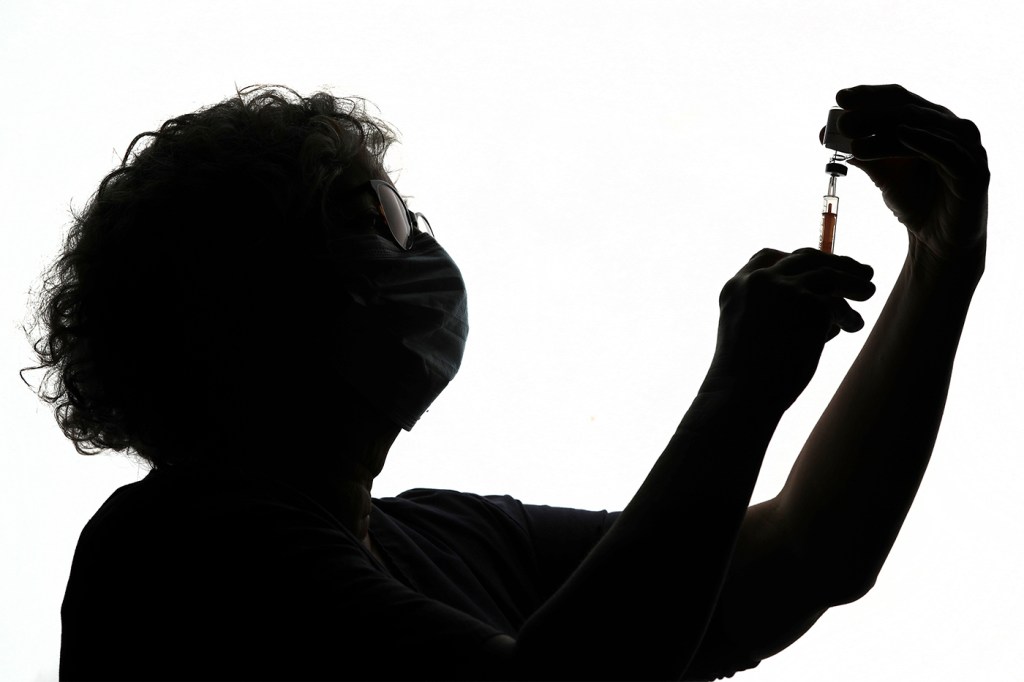Will your old measles shot
protect you from new outbreaks?

Public health officials are warning people about the danger of remaining unvaccinated against measles as the number of cases so far this year has surpassed the caseload for 2023.
“It’s concerning. The areas where we’ve seen some of the biggest outbreaks of measles are areas with low vaccination rates,” says Neil Maniar, director of Northeastern’s Master of Public Health program.
In March, the Centers for Disease Control and Prevention reported that this year it has seen 64 cases of measles in 17 states, which is six more cases than occurred the previous year. The cases occurred mainly in children 12 months and older who had not been immunized against measles, prompting the CDC to issue a health alert urging adherence to pediatric vaccination schedules.
But how about people who got their measles shots years and even decades ago? Will they still be immunized against the highly contagious virus if outbreaks continue to proliferate?
If it’s been ages since you’ve received your measles vaccine, “you probably don’t have circulating antibodies at this point,” although you likely still harbor “memory B cells” that can respond to an infection quickly, Northeastern professor Brandon Dionne says.
As measles cases rise across the globe, researchers are taking a closer look at a vaccine long considered to offer lifelong immunity.
An effective childhood vaccine
The measles, mumps and rubella shots are typically given around the age of 1 and again between the ages of 4 and 6.
Dionne calls the vaccine “incredibly effective” in protecting against the measles virus, which in the U.S. infected 4 million people annually, killing 450 of them, prior to the vaccine’s introduction in 1963.
Only about three out of 10 people who get two doses of MMR vaccine will get measles if exposed to the virus, and they are likely to have a milder illness and be less contagious to others, according to the CDC.

“The measles vaccine is definitely one of the ones to get,” Dionne says.
Measles childhood vaccination campaigns have been so successful that in 2000 the United States declared that the lack of continuous disease transmission meant that measles had been eliminated from the country.
Featured Posts
Public health officials fear that status could be reversed as outbreaks around the world caused measles cases to increase 18% from 2021 to 2022 and deaths to rise by 43%, or an estimated 136,000 fatalities, mostly among children, according to a report from the CDC and World Health Organization.
In the United States, an overwhelming majority of measles cases are associated with international travel, prompting the CDC to move up the MMR vaccination schedule for babies traveling internationally to 6 months instead of 12 months, according to an AMA update.
Does immunity wane in adults?
How much immunity wanes in adults is a relatively new topic of research, but also a growing area of concern, Dionne says.
“There’s no data now for re-vaccinating people. That may be something the CDC will have to look into if a certain part of the population is going to avoid (getting) the MMR vaccine,” Dionne says.
“We don’t routinely check people’s titers [antibody test that proves immunity] to the MMR vaccine, but some studies indicate circulating antibodies decline in effectiveness over the years,” he says.
Even so, vaccinated adults continue to receive protection from “memory B” cells that linger in the immune system, Dionne says.
He says the cells serve as a “memory of infection so that if you are exposed to (measles) in the future, you’re going to have a quicker response. The memory B cells can recognize infection quickly and form antibodies within days as opposed to a week or longer.”
A Swedish study shows that people with “low post-vaccination Ab titers might have an adequate (memory B cell) response,” but whether they offer the same protection as antibodies “remains to be shown.”
Should adults get another measles shot?
Dionne says the CDC notes that an additional dose of vaccine may be required for high-risk groups during an outbreak of measles or mumps, “but it is not clear exactly who that population is.”
If you’re concerned about your measles immunity status, Andrea Garcia of the American Medical Association suggests contacting your physician to look up your immunization record or taking a blood test that “can determine your immunity for measles by antibodies developed by either previous exposure or vaccination.”
A small percentage of people vaccinated before 1968 received a “killed” measles virus vaccine determined to be ineffective. The CDC recommends that those individuals talk to their doctor about getting revaccinated with the live version of the MMR vaccine.
People born before 1957 are considered to have immunity to measles due to natural exposure.
Measles among the most contagious of diseases
Considered most harmful to babies and small children, measles has been spreading in under immunized communities after being imported by unvaccinated travelers, Garcia says, noting that 2019 was a banner year for measles in the U.S. with more than 1,200 cases.
“Measles is incredibly contagious,” Dionne says.
“It’s spread through respiratory droplets that can hang in the air for quite a few hours after someone who has measles has been in the room,” he says.
“It’s not like you even have to be in the room with someone who has measles” to get infected, Dionne says.
Anyone who hasn’t been vaccinated should get inoculated right way, Maniar says.
“There’s no reason in this day and age that anyone should get measles. We have a very effective vaccine against it,” he says.











